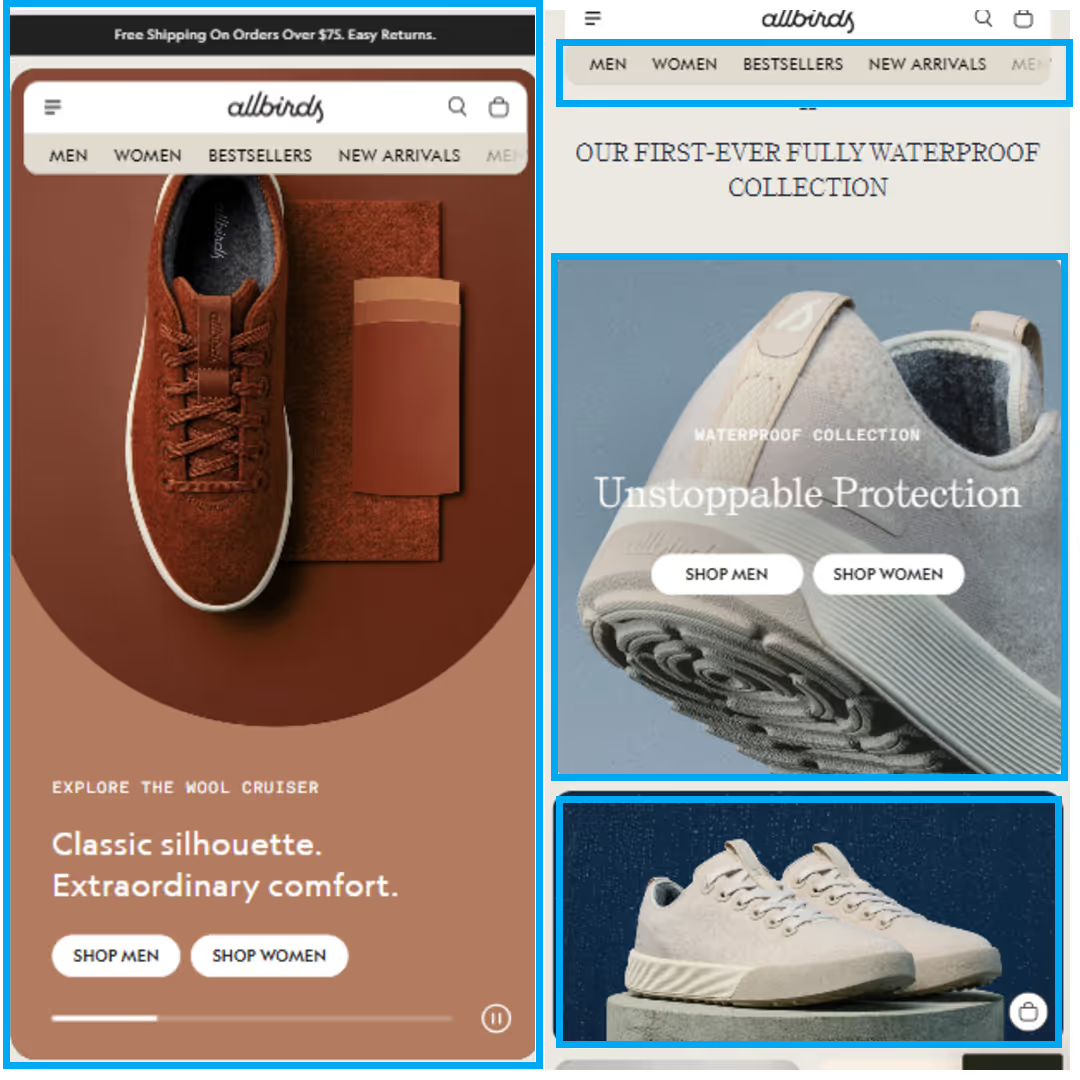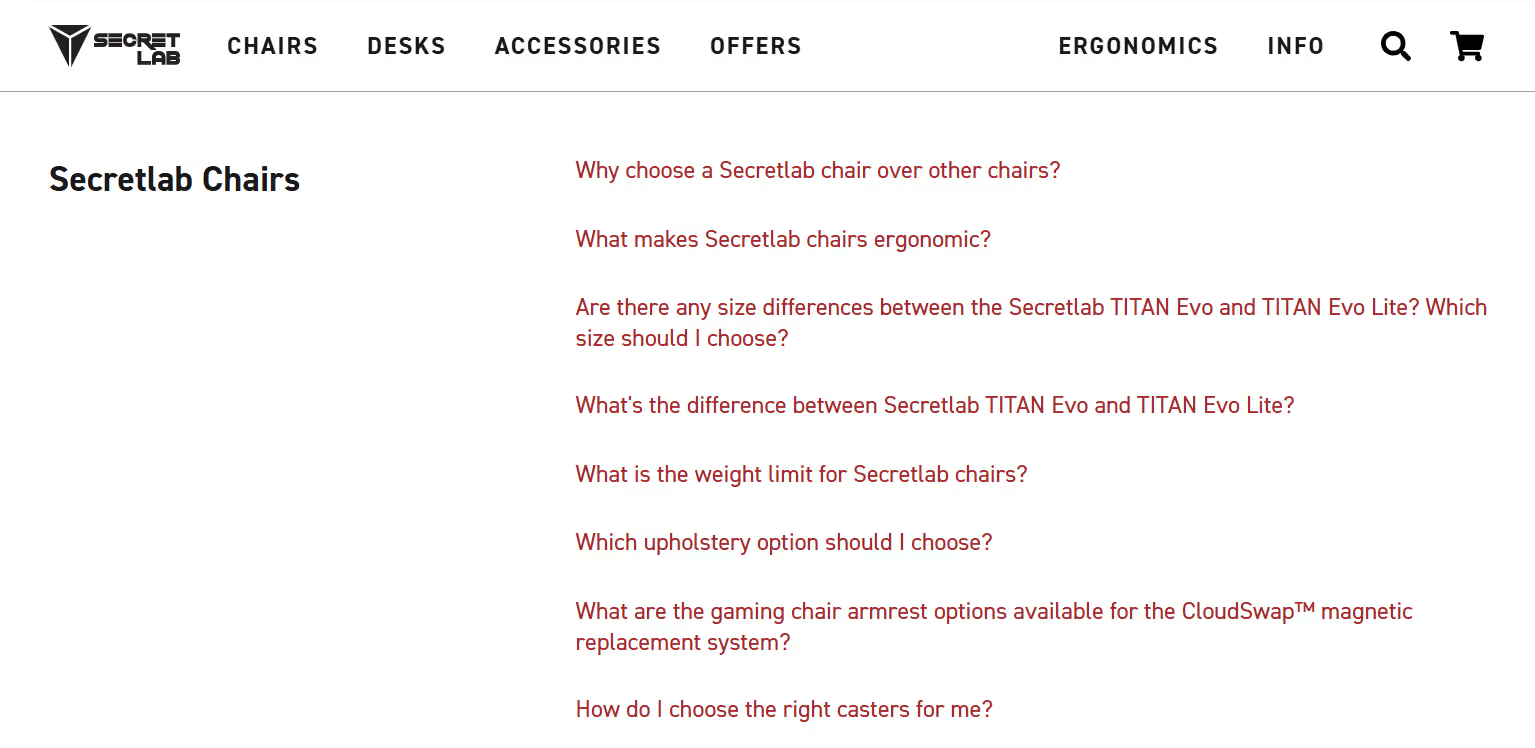Running a Shopify store means competing for attention in an incredibly crowded marketplace. With Shopify powering roughly 30% of the top million ecommerce sites worldwide, basic optimization simply won't cut it anymore.
Here's what's happening: store owners pour resources into keyword optimization but watch their rankings stagnate. The reason? Search engines have evolved far beyond simple keyword matching. Google now operates as a sophisticated AI platform that evaluates user intent, content relevance, and overall site quality in ways that would have seemed impossible just a few years ago.
But there's an even bigger shift happening. Consumers are increasingly skipping traditional search entirely, heading straight to ChatGPT with queries like "recommend baggy and trendy jeans for women." If your product content isn't optimized for these AI systems, you're missing out on an entirely new way customers discover products.
Successful Shopify SEO in 2025 requires an AI-first approach that combines solid technical foundations with genuinely helpful content. This guide shows you exactly how AI agents can supercharge your Shopify SEO efforts and help your products get found, no matter where customers are looking.
Essential Shopify SEO Best Practices Enhanced by AI
Technical SEO Foundations
Site Speed Optimization: Slow sites don't just frustrate visitors—they tank your rankings. Use Google PageSpeed Insights to identify issues, then:
- Compress images using AI tools like Crush.pics that automatically optimize without quality loss
- Choose performance-focused themes like Turbo or Booster
- Audit and remove unnecessary apps that add script bloat
Mobile-First Optimization:Google now indexes the mobile version of your site first. Research shows that 87% of smartphone users rely on search engines at least once a day, making it critical for your site to be fast and fully responsive on mobile. To ensure a seamless experience, test your store across multiple devices and check that:
- Navigation elements are easily tappable
- Product images display properly without horizontal scrolling
- Text is readable without zooming
- Checkout process works seamlessly on smaller screens
A good example of this is Allbirds, whose mobile site is uncluttered with clearly defined categories like Men, Women, and New Arrivals. The site loads quickly, and product images use minimal backgrounds—making the shopping experience smooth and accurate for mobile users.

SEO-Friendly URL Structure: Create logical, hierarchical URLs that both humans and search engines can understand:
For instance:
Instead of: yourstorename.com/products/p123456
Use: yourstorename.com/collections/outdoor-gear/waterproof-hiking-boots
Structured Data Implementation: Help search engines understand your products with schema markup:
<script type="application/ld+json">
{
"@context": "https://schema.org/",
"@type": "Product",
"name": "Waterproof Hiking Boots",
"image": "https://yourstorename.com/images/hiking-boots.jpg",
"description": "Durable waterproof hiking boots with superior ankle support for challenging trails.",
"brand": {
"@type": "Brand",
"name": "TrailMaster"
},
"offers": {
"@type": "Offer",
"url": "https://yourstorename.com/collections/outdoor-gear/waterproof-hiking-boots",
"priceCurrency": "USD",
"price": "149.99",
"availability": "https://schema.org/InStock"
},
"aggregateRating": {
"@type": "AggregateRating",
"ratingValue": "4.8",
"reviewCount": "89"
}
}
</script>
This markup increases your chances of winning rich snippets in search results, which can boost click-through rates considerably.
Content Optimization with AI
AI-Powered Keyword Research: Move beyond basic keyword tools with AI systems that understand semantic relationships:
- Use AI tools to identify topics and questions related to your products
- Analyze search intent patterns rather than just keyword volume
- Identify question clusters your product content should address
Product Page Optimization Using AI: AI can dramatically enhance product content quality:
- Generate comprehensive, SEO-optimized product descriptions at scale
- Ensure descriptions address common customer questions
- Maintain consistent brand voice across hundreds or thousands of products
- Include relevant semantic keywords naturally within content
Tools like Yarnit's PDP Generator, can help in changing basic product descriptions into unique, benefit-focused content that talks in your brand voice.
Creating Useful Content Beyond Products: Use AI to develop supporting content that drives traffic and builds authority:
- Comprehensive buying guides that answer pre-purchase questions
- Product comparisons that help customers make decisions
- How-to content that demonstrates product usage
- FAQ sections that address common concerns
For instance, Secretlab Chairs does this effectively through its FAQ section. The brand not only answers common customer queries but also categorizes them into product-specific and order-specific sections, making it easier for shoppers to find exactly what they need.

Competitive Research and Social Integration
AI-Enhanced Competitor Analysis: Use AI tools to identify gaps in your competitors' content strategy:
- Analyze competitor product pages for missing information you can provide
- Identify questions competitors aren't answering well
- Find keyword opportunities they've overlooked
For a competitor analysis of your product use AI tools like Ask Yarnit—its competitive intelligence capabilities help analyze competitor websites, extract positioning insights, track trends, and generate actionable recommendations to stay ahead.
Social Signals and Integration: While not direct ranking factors, social signals amplify SEO efforts:
- Ensure product pages have easy social sharing options
- Use structured data so products appear correctly when shared
- Create Instagram shopping integrations with your Shopify store
- Build Pinterest-optimized product pins that drive traffic
- Use AI to create catchy captions and visuals that help you stand out from your competition.
Top AI Tools for Shopify SEO
Yarnit
For Shopify store owners, product descriptions represent one of the biggest SEO opportunities—and challenges. Yarnit's PDP Generator solves this by:
- Creating unique, SEO-optimized product descriptions at scale that maintain your brand voice
- Automatically incorporating relevant keywords in natural, compelling ways
- Generating product content that addresses common customer questions
- Producing descriptions that convert by highlighting benefits, not just features
Unlike generic AI tools, Yarnit is specifically designed for ecommerce product content, understanding the unique requirements of Shopify SEO and product page conversion.
ChatGPT
Beyond general content creation, ChatGPT excels at:
- Brainstorming blog topics related to your products
- Creating meta descriptions that boost click-through rates
- Generating FAQs based on product features
- Troubleshooting specific technical SEO issues
Semrush AI
Their suite of AI-enhanced tools offers:
- Competitive gap analysis to find keywords competitors rank for but you don't
- Content optimization suggestions specifically for ecommerce pages
- Technical SEO audits tailored to Shopify's platform characteristics
Surfer SEO
Provides AI-driven content optimization by:
- Analyzing top-performing pages in your niche
- Suggesting optimal content structure and topics to cover
- Offering real-time content scoring as you write
MarketMuse
Helps build topical authority through:
- Identifying content gaps in your product categories
- Planning comprehensive content strategies around product lines
- Measuring content quality against competitors
Best Practices for Shopify SEO Optimization
Brand Voice Consistency
Maintaining a consistent brand voice isn't just good branding—it's good SEO. Modern search algorithms evaluate content cohesiveness across your site. Use AI tools to ensure your brand voice remains consistent while still incorporating SEO elements.
Storytelling in Product Descriptions
Products with compelling stories get shared more, linked to more, and convert better. Use AI to help craft consistent narrative elements that showcase:
- The problem your product solves
- How it was developed or sourced
- Why materials or features were chosen
- Who the ideal user is and how they benefit
Local SEO for Shopify Stores with Physical Locations
If you have brick-and-mortar locations connected to your Shopify store:
- Create individual location pages optimized for local search
- Implement store locator functionality with structured data
- Ensure Google Business Profile listings are connected to your Shopify store
- Use localized content that mentions neighborhoods or regional terminology
Shopify SEO in 2025 requires a comprehensive approach that embraces both technical excellence and AI-enhanced content creation. The stores seeing the greatest success are those that:
- Optimize technical elements for both traditional search engines and new AI-based discovery
- Create product content that genuinely answers customer questions and addresses needs
- Use AI tools strategically to scale optimization efforts without sacrificing quality
- Maintain brand consistency while implementing SEO best practices
By implementing these strategies and utilizing tools like Yarnit, your Shopify store can achieve better visibility, higher engagement, and increased conversions in an increasingly competitive landscape.
Ready to transform your Shopify store's SEO performance? Try Yarnit's AI-powered PDP Generator today and see how optimized product content can drive real business results.
FAQs
Q1. How has Shopify SEO changed in 2025?
A. Shopify SEO now blends AI tools with traditional strategies to focus on content relevance, site speed, mobile optimization, and brand authenticity.
Q2. Which AI tools improve Shopify product descriptions?
A. AI tools analyze competitors, identify high-impact keywords, and generate consistent, brand-aligned product descriptions at scale.
Q3. How does AI assist with technical Shopify SEO?
A. AI audits site structure, finds issues like broken links, optimizes loading speed and mobile usability, and applies schema markup automatically.
Q4. Will AI content harm my site’s authenticity?
A. No. When used wisely, AI drafts content that your team refines to maintain brand voice and genuine customer connection.
Q5. How can AI analyze Shopify competitors?
A. AI uncovers keyword gaps, content strategies, backlinks, and product positioning to help you build a targeted SEO plan.
Q6. What role does social media play in Shopify SEO?
A. AI optimizes posting schedules and content, driving traffic between social channels and your store to boost rankings.
Q7. How do I measure AI-enhanced SEO success?
A .Track organic traffic, speed, bounce rates, engagement, and conversions; AI analytics highlight top-performing optimizations and ROI.





.avif)




